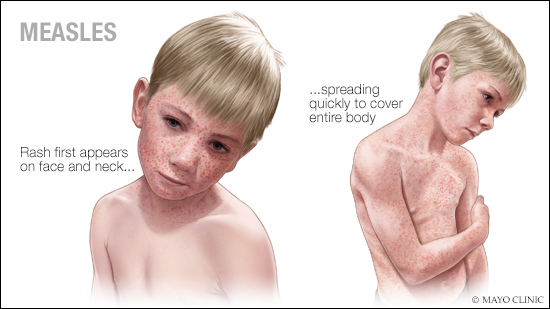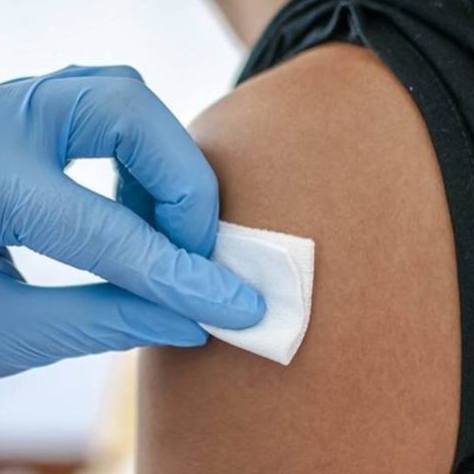-
Infectious Diseases
Measles remains a menace

You don't hear much about the measles anymore, but health officials in Philadelphia are keeping an eye on an outbreak in that city. To date, there have been eight confirmed since the investigation began in December.
Dr. Nipunie Rajapakse is a pediatric infectious diseases specialist at Mayo Clinic Children's Center. She says measles is a viral infection that used to be a fairly common childhood illness.
"Since we've introduced very effective immunization. It's quite rare to see it here in the United States," she says.
Watch: Dr. Nipunie Rajapakse discusses measles and vaccination
Journalists: Broadcast-quality sound bites with Dr. Rajapakse are available in the downloads at the end of the post. Please courtesy: "Mayo Clinic News Network." Name super/CG: Nipunie Rajapakse, M.D./Pediatric Infectious Diseases/Mayo Clinic.
Dr. Rajapakse says measles is one of the most contagious infections.
"So if you're in the same airspace as someone with measles, if they were there two hours ago, and you're not immune to it, you can still contract measles, even without ever coming face to face contact with that person. So that's why the vaccination is so important, she says.
Generally, symptoms include fever, cough, a runny nose and a characteristic rash that can involve much of the skin surface, but she says there also can be severe complications.
"It can infect the brain, for example, resulting in something called encephalitis. It can cause severe pneumonia. And so these complications are really what we're trying to avoid by vaccinating children before they get sick with it," says Dr. Rajapakse.
The Philadelphia Department of Public Health reports that at least three of the infected patients required hospitalization.
The measles vaccination is part of the MMR vaccine that is routinely given to children between 12 to 18 months of age and then again in the preschool vaccines when children are 4 to 6 years old.
Related Articles







